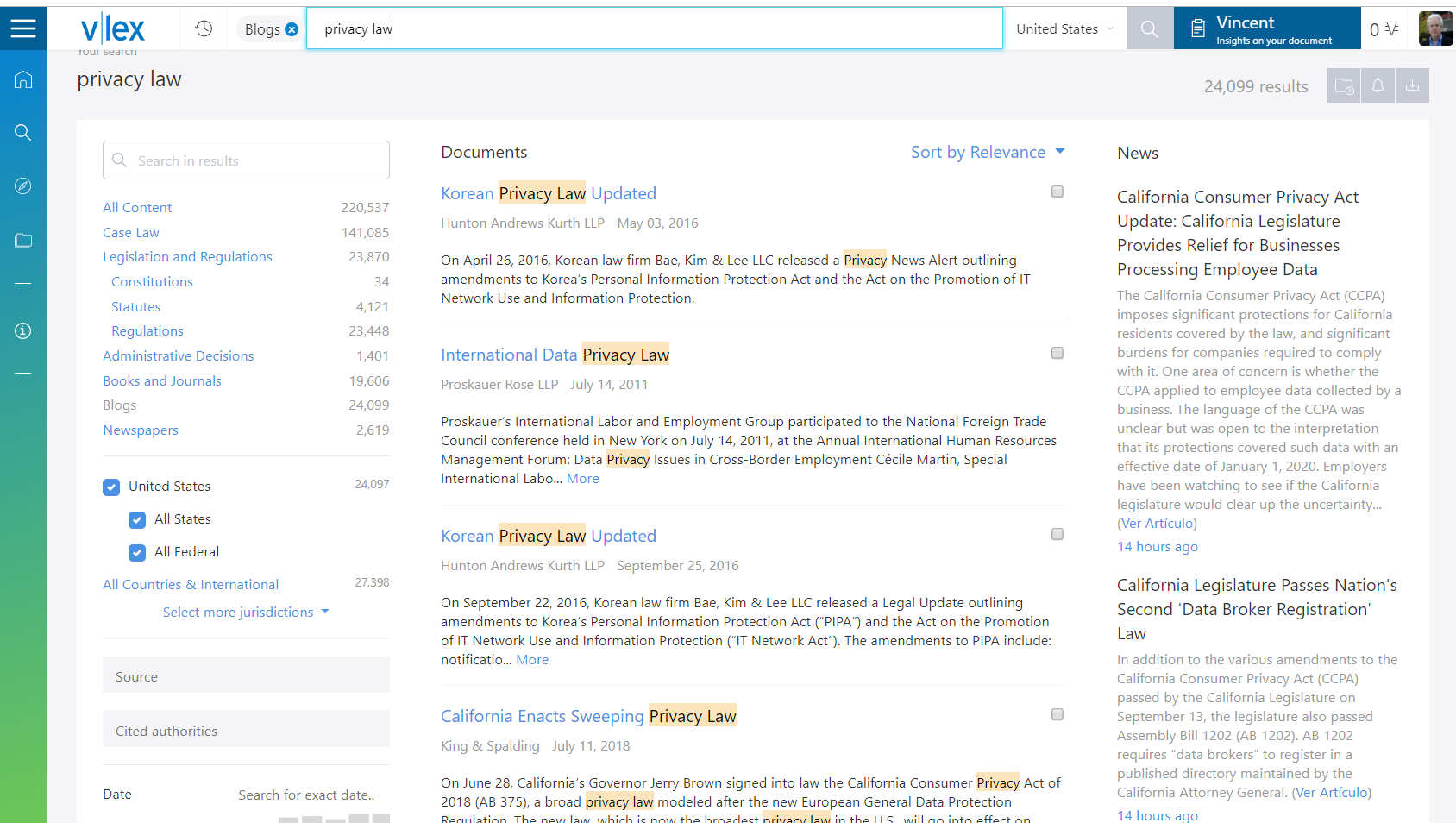
The international legal research service vLex has partnered with the legal blogging company LexBlog to add more than 400,000 law-related blog posts to its collection of legal-research materials, which currently spans some 100 jurisdictions, including the United States.
As a result of this partnership, legal researchers using vLex will now have direct access to legal news, insights and analysis from the LexBlog network of more than 23,000 individual bloggers writing on more than 1,400 blogs covering virtually every area of law. Estimated to include more than 400,000 blog posts, the collection will continue to grow with new posts added through regular updates.
These LexBlog blogs will become of a new blog category that vLex launched in July, originally with some 300,000 articles provided by the article-distribution service JD Supra.
[Disclosure: I work for LexBlog as publisher and editor-in-chief of LexBlog.com]
When you perform a search, you can narrow results to show matching blog posts.
vLex users will be able to access this blog content in multiple ways:
- By choosing the “Browse” function and then selecting blogs. (See the image above.) Users can then view blog posts sorted by most recent, most relevant or most popular, and apply filters to narrow the blog results shown.
- As part of their customizable news feed, blogs will be available to them as a category of news content, where they will be able to search for blogs and add them to their feeds.
- In search results, when blogs are relevant to the search query. Blog posts will be included in overall search results, and the user can select the Blogs category in the sidebar to filter search results to show only blog posts. (At this time, the blog category does not appear in the sidebar in all countries where vLex operates, but it is in the U.S. and Canadian versions).
- Through Vincent, vLex’s AI-powered brief-analysis tool, when blog posts are relevant to the brief, memorandum or other document the user has uploaded for analysis.
“The addition of LexBlog content on vLex will provide our customers with a much richer experience and enable them to access legal news, expert commentary and the important legal content they require all in one location,” Lluis Faus, vLex cofounder & CEO, said in a statement. “We’re pleased to be working with an established and trusted organization who provide much-needed content direct from law firms and well-known authors to our sector.”
“LexBlog is honored to play a role in the advancement and the administration of the law,” Kevin O’Keefe, LexBlog founder and CEO, said. “With legal insight and commentary moving from traditional law journals and law reviews to legal blogs, legal research platforms lacked a central source for this secondary law. As the ‘aggregator and curator of record’ for legal blogs, LexBlog welcomed the opportunity to serve vLex customers. vLex’s mission of delivering the world’s legal knowledge, one country at a time, fits right in with our mission of connecting lawyers with people, for good.”
Bottom Line
In the legal profession, blogs have become a leading source of news, analysis and commentary. As we have found at LexBlog, there are literally thousands and thousands of legal professionals writing blogs. They cover topics ranging from reporting on a just-decided case to analyzing long-term trends to discussing the business of law to offering how-to’s on various aspects of law and practice.
Given this, it makes sense that a legal research service should include blogs within the scope of its searches. In much the same way that law reviews once did, blogs provide context, analysis and insights around cases, statutes and regulations. They help a researcher better understand the cases they find in the course of their searches.
In fact, it seems to me that a research service that does not include blogs is significantly incomplete. If blogs are a central aspect of what’s being said about the law, then they should be a central aspect of research on the law.

